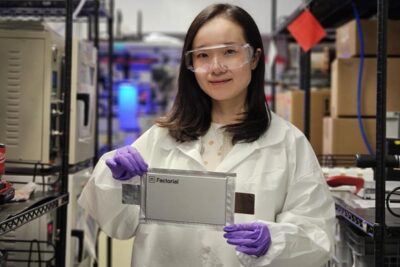US researchers find trick to extend battery life
Longer battery life cycles can help extend the service life of electric cars and improve stationary power storage systems, for example. According to a publication in the scientific journal New Scientist, a group of researchers led by William Chueh from Stanford University in California, USA, has succeeded in adapting the production process of lithium-ion batteries to extend their life cycle by 50 per cent.
The best thing about it is that manufacturers of lithium-ion batteries can basically use the new process immediately, as no intervention in the structure of the batteries is necessary at all. “The cool thing is that we didn’t change any chemistry of the battery,” said Chueh. “We just changed that last step in manufacturing to form the battery a little differently.”
That is because the improvement can be achieved by initially charging the battery with a high current, which can be done before they are delivered. Researchers ” used AI machine learning to identify the most important factors impacting battery performance during the first charge, and charging current was one of the most crucial,” the article says. That also proves the current practice wrong, as new batteries are usually charged over several hours at a low voltage.
The reason this first charge is crucial is that more lithium ions are deactivated in a new battery at a high voltage than when the first charge is carried out at a low voltage. However, the initial loss of ions creates more space in the positive electrode, which, according to the researchers, increases the efficiency of charging and discharging. The inactivated lithium ions also help to slow down the wear of the battery.
The process is said to extend the service life of rechargeable batteries by 50 per cent. It means, for example, that a battery in an electric car can go from lasting 1,500 charging cycles to more than 2,000 charging cycles.





5 Comments